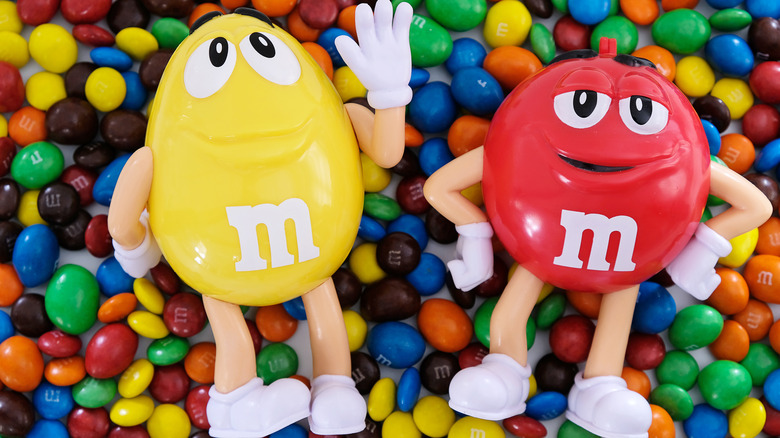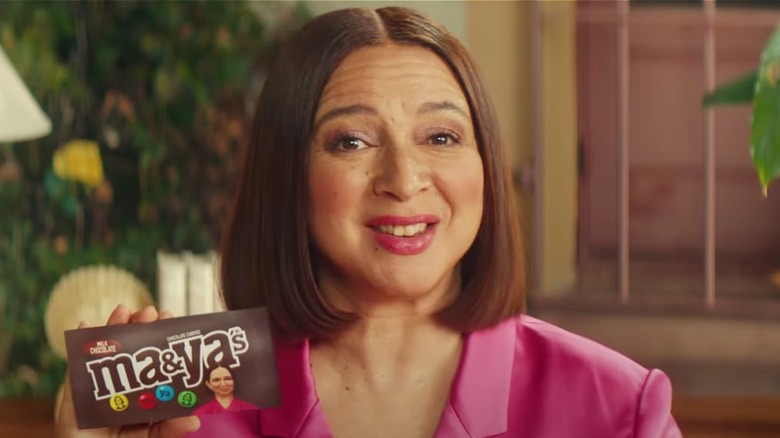The M&M's Spokescandies Scandal Might Just Be A Super Bowl Stunt
It seems to be the current catchphrase – "Has wokeness gone too far?" A quick Google search will pull up numerous headlines asking that same question. The term "woke" has long been used to describe knowing about and paying attention to issues related to racism and social injustice, per ABC News. But some people use it to criticize ideas seen as politically progressive. Enter the M&M's mascots, which recently made an exit. Mars, M&M's parent company, has spent part of the previous year shaking things up with its ”spokescandy" characters. It has added a few more females, updated some fashion, and introduced a purple M&M that is meant to represent inclusivity. Some people, including Fox News personalities Tucker Carlson and Martha MacCallum, harshly criticized the mascots for being "woke," according to Time.
In a Twitter announcement on January 24, the company said it "decided to take an indefinite pause on the spokescandies." M&M's replaced the canceled candies with a spokesperson, comedian Maya Rudolph. The announcement caused a stir. Time quoted Deb Gabor, CEO of branding agency Sol Marketing as saying, "What M&M's is showing is that it's going to back down from what it stands for if it receives a lot of negative criticism. It's becoming increasingly important to people that they know what brands stand for when they throw down their support." However, if you speculated that the company's apparent decision to give in to the naysayers might have been a publicity stunt, you were probably right.
We can take a collective sigh of relief
On Twitter, M&M's welcomed Maya Rudolph as the brand's "new chief of fun." The company also released a video of Rudolph announcing a major change in the candy's branding. "Since we all love M&M's and – let's face it – me, it only makes sense that I am renaming America's favorite chocolate candies Ma&Ya's." The multicolored candies even displayed her face instead of the famous "M." By this point, it was becoming obvious that the announcement may have been satirical.
The New York Times confirmed with the candy company that the M&M's characters aren't going anywhere. These announcements were a forerunner to a Super Bowl commercial that will air on February 12. Featuring Rudolph and the returning M&M's spokescandies, the ad will aim to "resolve the matter." According to The New York Times, trying to relate to younger consumers through ads that address social justice concerns has posed a challenge for legacy brands. Debbie Millman, who chairs the graduate program in branding at the School of Visual Arts, said, "Brands now have to take risks if they're going to make a meaningful connection with their constituents."
While many people appeared to be disappointed that M&M's had caved to complaints about its mascots being too woke, it seems they can rest assured that M&M's spokescandies and their messages of unity and representation will be with us for some time yet.

